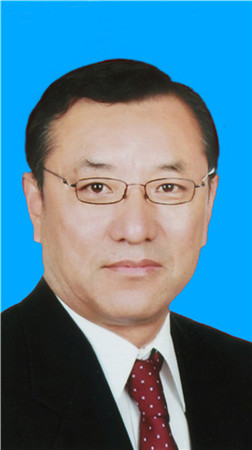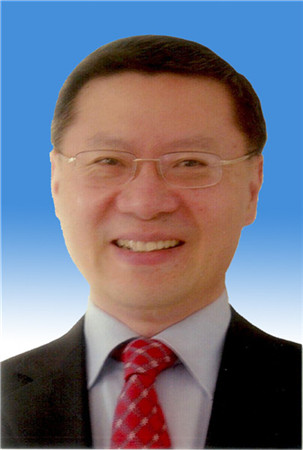|
SPEECH TIME |
GUEST |
POSITION |
SPEECH TOPIC |
|
Opening | |||
|
14:30-14:33 |
Opening Video | ||
|
14:33-14:36 |
Chen Fafen |
Deputy Director-General, Bureau for External Cultural Relations,Ministvy of Culture of the People's Republic of China |
Opening Address by the host |
|
14:36-14:39 |
Xiang Zhaolun |
Vice Minister, Ministry of Culture of the People's Republic of China |
Welcome Address |
|
14:40-14:49 |
Vasilij Chernik |
Vice Minister, Ministry of Culture of the Republic of Belarus |
Keynote speech: Culture of Belarus and Internet |
|
14:49-14:58 |
Lian Ji
|
President, Chinese National Academy of Arts |
Keynote speech: Facilitate Cultural, Communication on the Internet |
|
14:58-15:07 |
Mohamed Faisal |
Maldives Ambassador to China |
Keynote speech: Culture, Tourism and Innovation: Using Internet and Information Technology for Synergetic Development of Tourism and Cultural Products |
|
15:07-15:15 |
Dean of China Institute of Fudan University, board member of Chinas National Think Tanks Council, and senior researcher at the Shanghai Chunqiu Institute |
Keynote speech: Chinese Political Culture - Inspirations for Global Governance | |
|
|
| ||
 |
|
|
Vasilij Chernik, Deputy Minister of Culture, Ministry of culture of the Republic of Belarus. Member of national commission of UNESCO; Coordinator of activity in cultural sphere with China.
Chernik graduated from the Yanka Kupala State University of Grodno in 1984 and the Academy of Public Administration under the aegis of the President of the Republic of Belarus in 2000. In April 2013, he was appointed the vice minister of the Ministry of Culture of the Republic of Belarus.
Speech: Culture of Belarus and Internet
Description of modern culture of Belarus. Internet as an instrument of presentation of culture especially for young people. Best examples of presentations of cultural institutions and bright events in the internet.
 |
Lian Ji has a bachelor's degree and an EMBA degree. He is also an honorary doctorate from Buryat State University. He was mayor and secretary of the CPC Municipal Committee of Hulunbeier city, Inner Mongolia autonomous region, vice chairman of the People's Government of Inner Mongolia autonomous region, member of the standing committee and director of the publicity department of the CPC Gansu Provincial Committee.
Speech: Internet, Transmission and Protection of Intangible Cultural Heritage
Internet has become one of the most widely used technologies for the exchange of information among human beings. Changes of human society are caused by factors such as environment, technology and population. The progress of human civilization cannot do without cultural exchanges. Intangible cultural heritage, as creative cultural practices, contain great wisdom, rich experiences, systematic knowledge and strong abilities of human beings. Intangible cultural heritage is the important manifestation of cultural uniqueness of relevant communities, groups and individuals, and the important basis of the diversity of human culture. Intangible cultural heritage has become a unique and irreplaceable part in cultural exchanges. After being shared online, they can also enhance appreciation among different communities and help promote the harmonious development of human society. This is also a manifestation of the humanistic value of the internet.
 |
Mohamed Faisal was appointed as Maldives Ambassador to China in October 2014. Ambassador Faisal has an excellent mix of administrative and policy experience, having served the government of the Maldives and the United Nations in the Maldives. Ambassador Faisal has a strong academic background in social sciences, specializing in the areas of development studies and demography.
Speech: Culture, Tourism and Innovation: Using Internet and Information Technology for Synergetic Development of Tourism and Cultural Products
Maldives has a rich culture. Due to Maldives'prominent position in the Indian Ocean's main sea lanes, its culture has been shaped by years of interaction with the outside world. It is also one of the world's most popular tourist destinations. Its tourism is built on the natural beauty of the country with limited focus on promoting the tangible and intangible culture of the country. As a result, the world knows very little about the Maldives except for its ecological beauty and the environment. The Maldives also has a tech savvy young population. It is also where the internet is most accessible in all of South Asia. Close to 55 percent of Maldives'population has access to the internet. As such there is great scope for the Maldives to link its tourism and intangible culture using the tools of the internet and information technology to create synergies and create greater "Maldives" brand awareness, and in turn find new innovative ways to show Maldives to the world as more than just sea, sand and surf.
 |
Speech: Inspiration of Chinese Political Culture to Global Governance
The Chinese political culture could inspire global governance in many aspects, including:
1) The people-oriented culture. It gives top priority to improving people's livelihood in state governance. In global governance, the principal of enhancing people's livelihood and improving the well-being of the majority should also be established as soon as possible.
2) Being eclectic and innovative. The idea has led China to learn from advantages of other countries and to keep its own characteristics in the process of globalization.
3) Overall thinking, a tradition that has made China better at long-term strategic planning. In global governance, it's also necessary to help improve the forward-looking planning capacity of the whole international community.